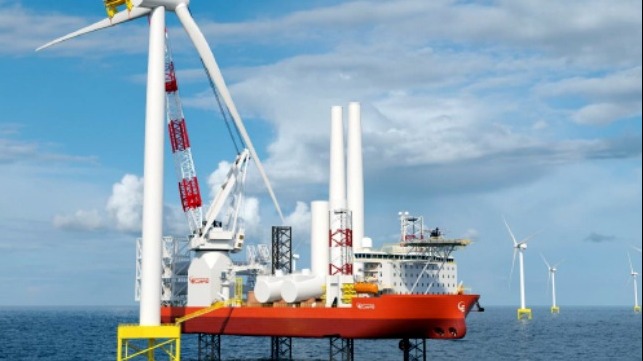Agreement for Next Generation Wind Turbine Installation Vessel

With strong and growing interest in off-shore wind tribune installations, a new design was unveiled for the next generation of wind turbine installation vessel.
Scorpio Bulkers announced that it has signed a letter of intent with Daewoo Shipbuilding and Marine Engineering to construct a wind turbine installation vessel with options for three additional vessels with similar specifications. The first ship is due for delivery in 2023.
The agreement calls for the construction of an NG-16000X design by GustoMSC that includes a 1500 Leg Encircling Crane (LEC) from Huisman Equipment B.V. According to the companies, it will be one of the most sophisticated dedicated turbine installation vessels in the world. It will have the capacity to install onto pre-prepared foundations the largest wind turbines currently designed, at a height of over 185 meters above sea level and in water depth in excess of 65 meters. Their goal is to accelerate “time to first power” for customers.
The vessel incorporates other features and green innovations that the companies believe can significantly improve the operating window and efficiency. Among the features will be the capabilities to use both hybrid-battery power and the capabilities to use fuel-cell technology. The design is for a vessel 148 meters in length and able to accommodate a total crew of 130 persons.
Offshore wind is expected to grow at a compound annual growth rate of over 15 percent for the next decade. According to Scorpio, it believes there is a growing shortage of vessels that can install and maintain next-generation turbines core to this growth. By its estimated, four additional installation vessels will be required to meet demands by 2024.
The companies expect to sign a construction contract in the fourth quarter of 2020. The total project cost is expected to be approximately $265-$290 million, subject to final design modifications.
